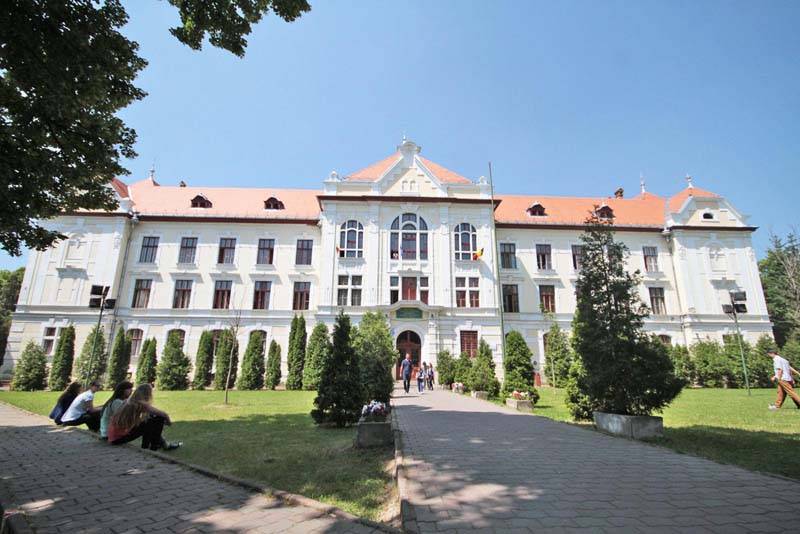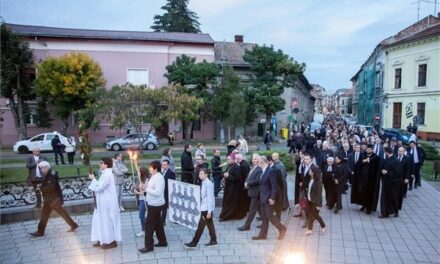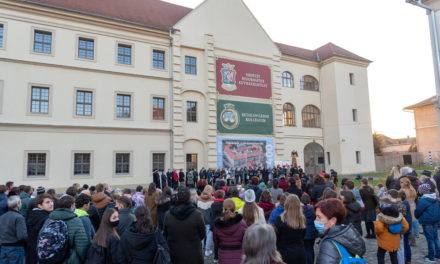After the ruling of the Romanian Supreme Court on Tuesday, the Marosvásárhely II court is once again characterized by legal uncertainty. the operation of Ferenc Rákóczi Roman Catholic High School.
The Supreme Court made a final judgment in the case in which Romanian nationalist organizations initiated the annulment of the ministerial decrees establishing the school. In November 2019, the Marosvásárhely District Court, acting in the first instance, invalidated the school's decrees.
The Supreme Court announced on its website on Wednesday that it had been accepted by the Ministry of Education and II. Ferenc Rákóczi Roman Catholic High School's appeal against the first-instance verdict, but later only detailed that it excluded the Civil Association for Dignity in Europe (ADEC) and the People's Movement Party (PMP) from the list of plaintiffs, and rejected their claims, the previous verdict was different and kept parts of it in force.
Zsolt Tamási , the director of the school, told MTI:
the lawyers interpret it as meaning that the essential parts of the previous judgment of deprivation of rights remained in force.
In his Facebook message on Wednesday afternoon, the director evaluated it as follows: the institution he leads has again been left without an operating license.
Kelemen Hunor , president of the Hungarian Democratic Union of Romania (RMDSZ), in his statement to the public media, considered it frustrating, outrageous and unacceptable that the establishment of the school required by the local community must be restarted every two or three years.
"This school exists and will exist. As soon as the Supreme Court's reasoning comes out, we will know what they are objecting to. We will continue the school with a government decision or another ministerial decree.
If we get stuck, we'll restart it anyway. There is no way that this school does not exist. It doesn't matter who it bothers or annoys. I consider it unacceptable that the case of a Hungarian school in Marosvásárhely has to be started all over again, because it is constantly blocked."
said the politician.
The People's Movement Party (PMP), known for its anti-Hungarian expressions, the Citizens' Association for Dignity in Europe (ADEC), and the parent community of the Unirea High School in Marosvásárhely and the high school jointly sued the Romanian Ministry of Education and the high school for the 2018 establishment of the educational institution, which is considered illegal.
The initiators of the lawsuit objected that the ministry made four administrative decisions that specifically related to the establishment of the school in Marosvásárhely. Marius Pascan, a former representative of the PMP who was expelled from parliament in 2020, believed that the gymnasium was created with the "nefarious political complicity" of the parties of the government coalition, at the behest and pressure of Budapest.
The Marosvásárhely Roman Catholic High School ceased to operate as an independent institution in 2018. In October 2016, the anti-corruption prosecutor's office (DNA) launched an investigation against school director Zsolt Tamási and former head inspector Stefan Somesan due to alleged illegalities committed when the school was established in 2014. The court returned the indictment of the case to the prosecutor's office for additions, but the lawsuits brought against the school led to the closure of the institution.
The Hungarian government announced in September 2017 that it would veto Romania's accession to the OECD due to the termination of the educational institute's legal status, and later, when Liviu Dragnea, the then president of the Social Democratic Party (PSD), assured Prime Minister Viktor Orbán of the school's re-establishment, Hungary withdrew the veto.
In February 2018, the Romanian parliament passed a law on the re-establishment of the school, but this was declared unconstitutional by the Constitutional Court a month later. The school was finally able to open its doors again based on the decree adopted by the Ministry of Education in August 2018. Ferenc Rákóczi Roman Catholic High School.
The educational institute is a thorn in the side of Romanian nationalist organizations because in 2004 the Roman Catholic Church sued the once nationalized school buildings in Marosvásárhely. Today, Marosvásárhely's Romanian-language elite school, the Unirea High School, operates in the former main building of the institution. The II. Ferenc Rákóczi Roman Catholic High School began its operations in the school's old building and in other church buildings.
MTI
Photo: Boda L. Gergely / erdelyinaplo.ro













